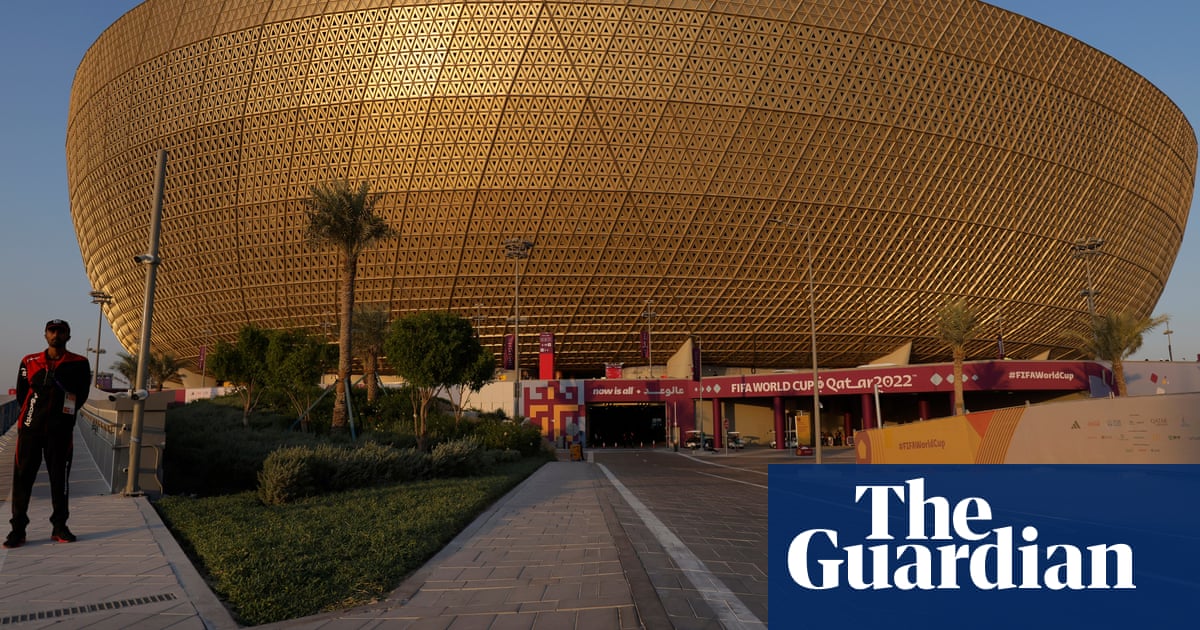Qatar have expressed interest in bidding to host the 2029Club World Cupin a move that would involve moving the tournament to the winter.
The Guardian has learned that Qatari representatives have held talks with Fifa officials at the highest level during the tournament in the United States and indicated a desire to stage the next edition in four years’ time.
Qatar are understood to have said they could host a carbon-neutral tournament in stark contrast to the current Club World Cup, which has involved teams flying all over the United States with venues in 11 different cities.
The nine stadiums constructed for the 2022 World Cup in Qatar remain in place, with six used regularly to stage games in the top-flight Qatar Stars League, and could be all be utilised to minimise staging costs and travel for fans.
While the proposed tournament logistics may suitFifa, the extreme heat in Qatar during the summer would present a major problem, and almost certainly require it to be moved to the winter, as was the case with the 2022 World Cup despite the initial bid being for a summer tournament.
High temperatures and extreme weather have also been an issue in the United States this summer, however, withChelsea’s last-16 win over Benficasuspended for two hours due to storms in Charlotte, a decision managerEnzo Maresca condemned as “a joke.”
Players from several clubs have complained about the conditions throughout the tournament, with global players’ union Fifpro set to address their welfare concerns in a press conference on Monday.
During informal discussions, it is understood that December 2029 has been mentioned as the most likely slot for a Club World Cup in Qatar, although this would be fiercely opposed by the European leagues including the Premier League because of the disruption it would cause to domestic seasons.
International lobby group European League is already taking legal against Fifa, along with Fifpro, over an alleged lack of consultation over the Club World Cup and staging the next tournament in Qatar would exacerbate this conflict.
While the date has yet to be confirmed there is also a widespread expectation that the 2034 World Cup in Saudi Arabia will be shifted to the winter.
Individual clubs who are likely to compete may take a different view, however, given the financial rewards on offer. Fifa has provided a $1bbn prize fund for the this edition, and with more time to agree commercial partnerships are likely to offer even more riches for the second edition.
Manchester City have already won $51.7m (£40m) for reaching the last 16 and will bank a further $74.1m (£54m) if they win the competition. There is $40m (£29.1m) on offer for winning the final alone, with the overall prize fund of $125m (£91m) for winning seven matches only slightly less than Paris Saint-Germain received from Uefa for their victorious 17-match Champions League campaign.
Fifa awarded the 2025 Club World Cup to the United States without a bidding process, but are expected to hold a formal contest for the right to stage the 2029 tournament given the levels of interest.
Qatar are the fourth country to declare their hand, with Spain and Morocco both having said they want to host the tournament on their own ahead of their joint staging of the 2030 World Cup, which will also see three matches held in Uruguay, Argentina and Paraguay.
In addition, Brazil last week publicly declared their bid for the 2029 Club World Cup following a meeting between the country’s football federation (CBF) president Samir Xaud and the Fifa president Gianni Infantino in Miami.
Fifa declined to comment.
